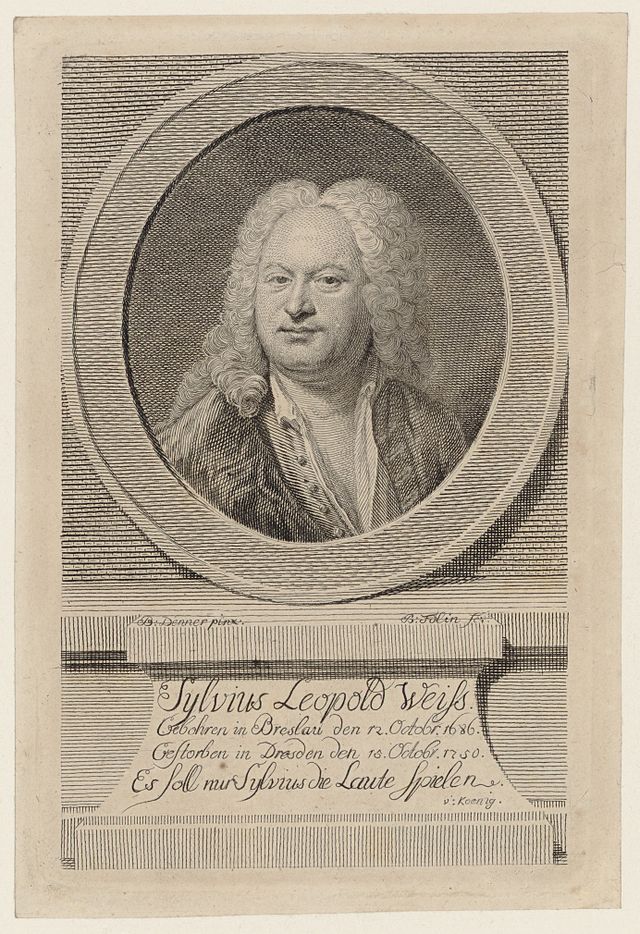Loading AI tools
German composer and lutenist From Wikipedia, the free encyclopedia
Sylvius Leopold Weiss (12 October 1687 – 16 October 1750) was a German composer and lutenist.
This article needs additional citations for verification. (January 2023) |

Born in Grottkau near Breslau, the son of Johann Jacob Weiss, also a lutenist, Weiss was one of the most important and most prolific composers of lute music in history and one of the best-known and most technically accomplished lutenists of his day.
In later life, Weiss became a friend of Wilhelm Friedemann Bach and met J.S. Bach through him. Bach and Weiss were said to have competed in improvisation.
Born in Grottkau near Breslau, the son of Johann Jacob Weiss, also a lutenist, he served at courts in Breslau, Rome, and Dresden, where he died. Until recently, he was thought to have been born in 1686, but recent evidence suggests that he was in fact born the following year.[1]
Weiss was one of the most important and most prolific composers of lute music in history and one of the best-known and most technically accomplished lutenists of his day. He was a teacher to Philip Hyacinth, 4th Prince Lobkowicz, and the prince's second wife Anna Wilhelmina Althan.
In later life, Weiss became a friend of Wilhelm Friedemann Bach and met J.S. Bach through him. Bach and Weiss were said to have competed in improvisation, as the following account by Johann Friedrich Reichardt describes:
"Anyone who knows how difficult it is to play harmonic modulations and good counterpoint on the lute will be surprised and full of disbelief to hear from eyewitnesses that Weiss, the great lutenist, challenged J.S. Bach, the great harpsichordist and organist, at playing fantasies and fugues."
Sylvius Weiss's son Johann Adolph Faustinus Weiss succeeded him as a Saxon court lutenist.
Weiss is buried at the Old Catholic Cemetery in Dresden, Saxony, Germany.
Weiss probably wrote more than 1000 pieces for lute,[2] from which about 850 attributed pieces survived, most of them grouped into 'sonatas' (not to be confused with the later classical sonata, based on sonata form) or suites, which consist mostly of baroque dance pieces. Weiss also wrote chamber pieces and concertos, but only the solo parts have survived for most of them.
https://www.findagrave.com/memorial/35112907/silvius_leopold-wei%C3%9F#source
Seamless Wikipedia browsing. On steroids.
Every time you click a link to Wikipedia, Wiktionary or Wikiquote in your browser's search results, it will show the modern Wikiwand interface.
Wikiwand extension is a five stars, simple, with minimum permission required to keep your browsing private, safe and transparent.